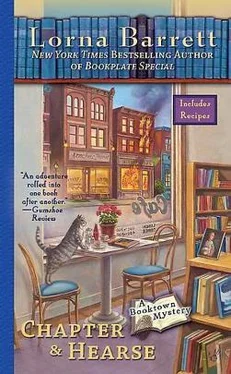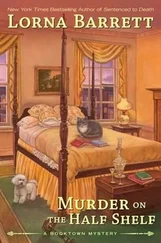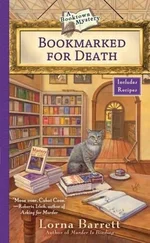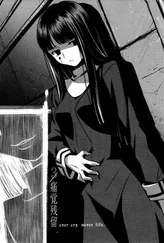Deborah’s hand flew to her throat. “Oh, Tricia, that is so nice of you to offer—but I couldn’t afford to pay—”
“I’m not asking you to. I’d be glad to help you—and so would Mr. Everett.”
Deborah’s hand moved up to cover her mouth, and she looked like she was about to cry. “It’s so sweet of you, but I just can’t accept.”
“Why?” Tricia asked, trying not to feel hurt.
Deborah seemed at a loss for words. “I just can’t.”
Tricia swallowed her disappointment. “Why don’t you think about it for a few days? Or just give a holler when you feel overwhelmed?”
Deborah nodded. “I will. I promise.” She cleared her throat, and looked for an escape. “I need another cup of coffee. You want one?” she asked.
Tricia shook her head.
“I’ll be back,” Deborah said, patted Tricia’s arm, and took off in the direction of the refreshment table.
Tricia let her gaze travel back to Captain Baker. He caught her eye and gave her a hesitant smile. Despite the way her conversation with Deborah had ended, she found herself smiling back—then caught sight of Russ watching her. The smile instantly evaporated. Captain Baker took a step forward, then stopped, looking at something behind Tricia. She turned, and saw Stoneham’s librarian, Lois Kerr, approaching.
“Tricia, I’m so pleased you made it. I hear I have you to thank for our latest donation.”
“Me?”
“Yes, Livvie Roth called the library yesterday afternoon. She’s donated the entire surviving stock from History Repeats Itself to the library, to use as we see fit. We’ll have quite a World War Two collection, and anything that we can’t use will go in our next book sale. Of course, some of the more valuable pieces we’ll try to sell to collectors, but it looks like it’ll generate quite a bit of revenue for us. Thank you so much for suggesting us to Mrs. Roth.”
“You’re very welcome. Do you know if she plans to attend this morning? When I last spoke with her, she was undecided.”
“I believe she said she was going to try to make it. Frannie has asked me to make the announcement about the donation.”
“It’ll be quite a tribute to Jim,” Tricia agreed.
Frannie approached. “Lois—Tricia, I’m so glad you both could come.”
Tricia gave Frannie a brief hug. “I’m glad to be here—for you, and for Jim,” she whispered. She pulled back.
“If you’ll excuse me,” Lois said, “I’m going to warm up my coffee.”
“We’ll be starting in just a few minutes,” Frannie warned. Lois gave her a brief wave and headed for the coffee urn.
“That’s a lovely outfit you have on,” Tricia said.
A blush rose on Frannie’s cheeks, and she looked down at herself. “Do you think? I bought it when I thought. . . .” Tears filled her eyes. “Last fall, Jim and I talked about getting married. But that’s all that came of it—talk. I guess I was foolish to buy it. And then when Jim was killed, I figured I’d never get the chance to look pretty for him. Then I thought—well, why not wear it today, in his honor?”
Tricia nodded, trying not to see it as the pathetic gesture it was.
“Of course, I haven’t told anyone but you about our hopes and plans, and I’m sure I can trust you not to say a word. Not even to Angelica.”
Tricia said nothing, and hoped she could get to Angelica before she mentioned it to Frannie. She gave the room a once-over.
“I see the Dexter sisters are here,” Tricia said.
Frannie let out a frustrated sigh and pursed her lips. “Those old biddies. They didn’t know Jim. They wanted a chance to speak—to urge everyone to sign their petition to reestablish a Stoneham police force. I told them no, but they wouldn’t leave, and are circulating the room asking people to sign. I’d give them a piece of my mind, but my mama taught me to respect my elders.”
Tricia saw a man adding his signature to the petition. She figured she ought to change the subject, before Frannie exploded in anger. “I spoke to Bob Kelly this morning. He said he didn’t feel well enough to make it.”
Frannie shrugged. “I’m not surprised. He’s kept a low profile since Jim’s death. If he hadn’t been in the building when it blew, I’m sure people would assume he was behind Jim’s death.”
“You sound like you’ve changed your mind about him.”
“There don’t seem to be any other viable suspects,” Frannie said, with a pointed look at Captain Baker. He just stared back.
Frannie looked at her watch. “I guess I’d better get things moving along. These dear people—as well as you and I—need to get their shops open in another hour or so. If you’ll excuse me.” Frannie crossed the room, but paused to speak to Chauncey Porter. He held a sheet of paper—his eulogy, no doubt. He nodded, and then Frannie stepped over to the refreshment table, picked up one of the glass punch cups and a spoon, and moved to the front of the room. Chauncey picked up the easel and poster, and set it beside Frannie. Tricia cringed as Frannie tapped the spoon on the glass. So much for keeping her feelings and aspirations a secret. Was Frannie determined to employ every wedding tradition at this wake?
“May I have your attention, please?” Frannie called.
The voices died down, and everyone stepped closer to the front of the room.
“It’s with deep sadness that we’re here today, to bid our friend Jim Roth good-bye.” She sighed, looked like she was about to cry, but then forced a smile. “I met Jim when he joined the Chamber of Commerce just five years ago. He was a great asset to the organization, as well as being the kindest, sweetest man you’d ever want to meet,” she continued. “Jim could be counted on to make great suggestions, and he always paid his dues on time. In addition, he—he. . . .” She seemed to struggle to find something else to say. “He was a wonderful man.”
A soft smattering of applause followed. Frannie waited for quiet to return before speaking again. “Jim’s good friend and Main Street neighbor, Chauncey Porter, will give the eulogy.”
Chauncey stepped up to the microphone, tapped it twice, and said, “Test, test.” A titter of laughter went through the waiting audience. Chauncey retrieved a pair of reading glasses from the breast pocket of his suit jacket, settled them on his nose, and glanced down at his speech.
“Friends, we’re here today to say good-bye to our neighbor, our fellow Chamber member, and a friend to us all. Jim Roth was all those things, but he was much, much more. Jim could be counted on to pitch in at Chamber meetings, bringing good ideas to help his fellow members and strengthen the organization, as well as helping out at the many charity events the Chamber sponsored.”
Tricia frowned. She hadn’t remembered Jim doing any of those things. Perhaps he’d been more active before she’d come to Stoneham.
“Jim’s knowledge of history was vast—he was a veritable font of information. He was the perfect man to own a shop like History Repeats Itself, sharing what he knew about events of the past—from prehistoric days, right through the Cold War, to the conflicts in the Middle East. He may have missed his calling, for I believe he would’ve made a wonderful teacher. He would’ve made history fun for the kids of Stoneham High—or any other place of education.”
All around Tricia, heads nodded in agreement. Someone blew their nose, and there were several pairs of damp eyes as tears were brushed away. Head bent, her eyes covered by the wad of tissues in her hand, Frannie quietly sobbed. Russ scribbled in his steno pad, no doubt gathering material for Jim’s obit.
As Tricia looked around the room, she noticed Livvie Roth standing in the open doorway, listening to the tribute for her son. She gave Mrs. Roth a tentative smile and a brief wave, but the old woman’s eyes were riveted on Chauncey.
Читать дальше











